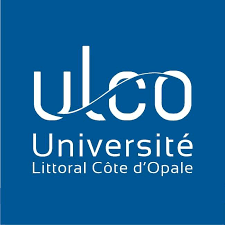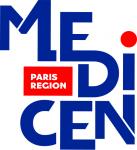Learning-based approaches for informed data completion: Multi-scale spectral detection of Roscoff worms.
| ABG-134494 | Master internship | 6 months | environ 650 euros |
| 2025-11-21 |

- Data science (storage, security, measurement, analysis)
Employer organisation
Website :
The internship will take place at the Longuenesse(62) branch of LISIC. This branch, created in 2020, currently hosts 7 permanent researchers, 3 postdoctoral researchers and 7 PhD students. The intern will be supervised by Claire Guilloteau and Gilles Roussel, who will provide their respective expertise in hyperspectral image processing and machine learning for satellite imaging. The intern will also have the opportunity to collaborate with Christophe Colleoni and Anne Créach, researchers specialized in the integrative biology of storage polysaccharides at the UGSF laboratory (Unit of Structural and Functional Glycobiology) at the University of Lille.
Description
Project description:
The Roscoff worm (Symsagittifera roscoffensis) is a small marine organism living in photosymbiosis with a green microalga (Tetraselmis convolutae), making it both a model organism for studying symbiosis and a bioindicator of the health of coastal ecosystems [1]. Currently, the detection and monitoring of Roscoff worms rely on direct observation. Identifying and monitoring this species remotely remains a scientific and technological challenge. Developing automatic identification and monitoring methods would enable assessment of the environmental factors influencing their presence and distribution, as well as their dynamics over a tidal cycle or during extreme meteorological events. These advances would also help to better understand the ecological role of the Roscoff worm, which contributes to organic matter fluxes, enhances CO2 capture through its symbiotic algae, and contributes to O2 production in coastal areas. Spectral imaging approaches enable the characterization of the optical signature of organisms or habitats, opening the way to their remote detection [2].
In this internship, the Roscoff worm therefore serves as an ideal case study for developing multi-scale detection methods and hyperspectral data processing techniques.This internship project aims to address two main scientific challenges:
• The observation scale. Detection at close range in controlled environments is feasible in a laboratory, butgeneralizing to airborne or satellite scales remains uncertain, notably due to spatial resolution constraints [3].
• Informed completion of multi-source data. Informed completion refers to intelligently combining fine butlocal data (airborne) with coarse but global data (satellite) in order to reconstruct complete and consistent information. This task represents a significant methodological challenge.
The objective is to develop a multi-scale spectral detection approach for Roscoff worms. The project is structuredaround the following three steps:
1. Identify the spectral bands relevant for detecting Roscoff worms at close range (laboratory) and in controlled environments. This step will support a careful selection of the satellite and airborne instruments to be used in the study.
2. Develop and test informed data completion methods to combine images acquired at different resolutions(airborne, satellite).
3. Assess the feasibility of large-scale automatic detection of Roscoff worms in coastal environments, and identify candidate sites for future in situ or airborne data acquisition campaigns.The goal of the project is to develop a tool capable of producing exploratory maps of potential Roscoff worm presence from satellite and airborne data, contributing to the development of an innovative coastal biodiversity monitoring system. From a methodological standpoint, the project includes an experimental component at eachstage. A first exploratory phase in the laboratory will focus on acquiring hyperspectral images of Roscoff worms in controlled conditions. A second experimental phase will involve acquiring airborne images over sites previously identified by UGSF researchers to test detection capabilities in natural environments at an intermediate scale.The majority of the project involves developing informed data completion algorithms using machine learning approaches. Numerous informed data completion methods exist in the literature, but they are often developed using idealized or simulated cases. Consequently, few are adapted to the constraints of our problem: potential misalignment between images, limited knowledge of instrument specifications, no annotated data or ground truthavailable, limited representativity of airborne data, and non-linearity of spectral mixtures.
This topic is the subject of a PhD funding request for autumn 2026. If granted, the selected student maycontinue this work towards a doctoral thesis.
Supervision:
The internship will take place at the Longuenesse(62) branch of LISIC. This branch, created in 2020, currently hosts 7 permanent researchers, 3 postdoctoral researchers and 7 PhD students. The intern will be supervised by Claire Guilloteau and Gilles Roussel, who will provide their respective expertise in hyperspectral image processing and machine learning for satellite imaging. The intern will also have the opportunity to collaborate with Christophe Colleoni and Anne Créach, researchers specialized in the integrative biology of storage polysaccharides at the UGSF laboratory (Unit of Structural and Functional Glycobiology) at the University of Lille.
Application:
With a scientific background in data science (signal and image processing, computer science with a focus on artificial intelligence/learning/machine learning, applied mathematics), you are curious and highly comfortable with programming (Matlab, Python, C). You read and speak English with ease. Although not required, prior experience in hyperspectral satellite image processing or deep learning will be appreciated.
To apply, please send the following documents supporting your application:
• your CV,
• a motivation letter,
• your academic transcripts from Bachelor year 3, Master 1, Master 2 (if available), or Engineering School (firstto third year),
• up to two recommendation letters, or the names and contact details of two referees.
Applications will be reviewed on a rolling basis until the position is filled.
Profile
With a scientific background in data science (signal and image processing, computer science with a focus on artificial intelligence/learning/machine learning, applied mathematics), you are curious and highly comfortable with programming (Matlab, Python, C). You read and speak English with ease. Although not required, prior experience in hyperspectral satellite image processing or deep learning will be appreciated.
Starting date
Vous avez déjà un compte ?
Nouvel utilisateur ?
Get ABG’s monthly newsletters including news, job offers, grants & fellowships and a selection of relevant events…
Discover our members
 Généthon
Généthon  TotalEnergies
TotalEnergies  Servier
Servier  ADEME
ADEME  Groupe AFNOR - Association française de normalisation
Groupe AFNOR - Association française de normalisation  SUEZ
SUEZ  ANRT
ANRT  Ifremer
Ifremer  ONERA - The French Aerospace Lab
ONERA - The French Aerospace Lab  Institut Sup'biotech de Paris
Institut Sup'biotech de Paris  ASNR - Autorité de sûreté nucléaire et de radioprotection - Siège
ASNR - Autorité de sûreté nucléaire et de radioprotection - Siège  Aérocentre, Pôle d'excellence régional
Aérocentre, Pôle d'excellence régional  Tecknowmetrix
Tecknowmetrix  Nantes Université
Nantes Université  Laboratoire National de Métrologie et d'Essais - LNE
Laboratoire National de Métrologie et d'Essais - LNE  Medicen Paris Region
Medicen Paris Region  Nokia Bell Labs France
Nokia Bell Labs France
